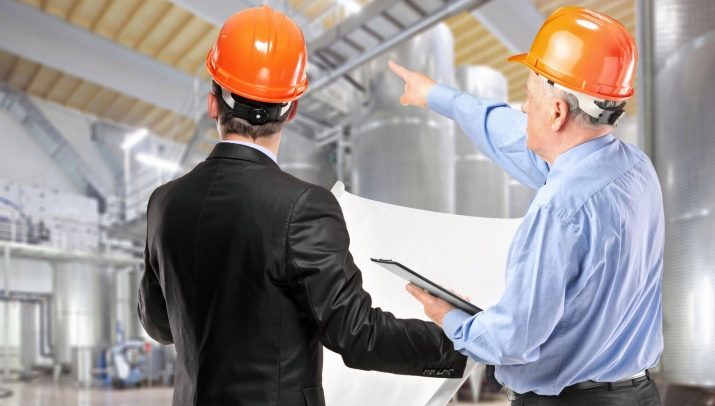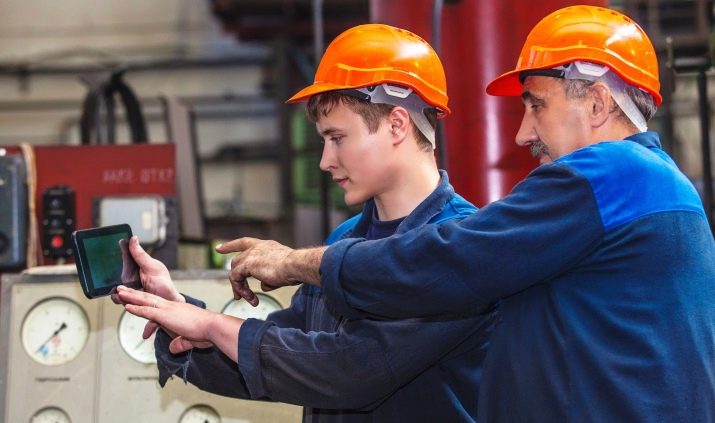All about the profession of an engineer for the operation of buildings and structures

All enterprises with buildings and structures on their balance sheet have a specialist who is responsible for the condition of these facilities. The staff of any company must necessarily have an engineer for the operation of these buildings. This is especially true for firms that are engaged in the construction of residential complexes or other large facilities.

Peculiarities
An engineer for the operation of buildings and structures is a specialist with a higher or secondary specialized technical education who carries out both cosmetic and major repairs of buildings, sewer systems, ventilation systems, and also controls the safe operation of individual elements of construction projects.
All functions of this employee (as well as everything that is directly related to them) are developed and provided for in ECTS. The state professional standard also provides for all functional responsibilities and requirements for this profession.
Responsibilities
An engineer of this specialization, who works in production, is unequivocally responsible for the operation of offices and warehouses, high-voltage networks, gas substations and everything that can be considered a ground construction. Before starting work, the engineer is familiarized with the job description, which indicates all the duties, requirements and everything for which he is responsible. The duties of an engineer include not only control over the condition of specific buildings, but also the equipment that is located directly in them. It can be a transformer, an elevator or something else.

A specialist in this area develops successful plans and schedules for all future repairs, including the repair of installations, machines or the reconstruction of fixed assets of the enterprise, and also monitors the processes of their maintenance and operation, if necessary improves them, monitors the implementation of agreed plans. Introduces and promotes the implementation of systematic regulated maintenance, which implies the planned repair of installations, their adjustment, the well-coordinated work of the enterprise, devices with high efficiency.
Supervises areas and divisions of the enterprise that take part in the repair and testing of equipment, monitors the correct technical operation of facilities.
In case of frequent accidents or downtime of machines and mechanisms, he looks for the causes and investigates them, takes measures to prevent them. Carries out certification of equipment and records of buildings and objects, as well as all fixed assets of the company, makes adjustments to passports after repairs or improvements, maintains reports and draws up technical documentation.

Prepares the papers necessary for concluding contracts with legal entities that manufacture and supply spare parts and equipment, make major repairs, and take into account the funds spent on these needs. Thanks to a specialist in this profession, any construction or other objects are put into operation.
The engineer must see the entire operational facility, i.e. should anticipate what breakdowns and repairs may be in the next year. If there are already incipient damages - such as cracks in the walls, a hole in the roof or plumbing, he is obliged to include all repair costs in the estimate for the next year.
As for unforeseen global breakdowns that arose unexpectedly, without preventive measures, or they were carried out out of time, the duty of the engineer is to be present at the scene of the accident in order to eliminate and make the necessary decisions to eliminate the problem. The specialist must call the necessary services if he cannot solve the problem with the help of his employees.
Of course, he can entrust repairs to his subordinates from the service department, but at the same time he is obliged to monitor safety measures.

This profession is very serious, therefore the engineer is liable for non-fulfillment or negligent fulfillment of his duties, which are mandatory specified in the job description. If, due to his reason, damage is caused or there is an offense on his part, he may be punished under the administrative, criminal or civil legislation of the Russian Federation.
Knowledge and skills
The specialist in question must be familiar with the current laws and regulations of our country, which relate to technical operation, as well as the final demolition of structures, the timely conduct of work related to repairs and the distribution of funds for these activities. He must know how the building projects are correctly drawn up, how the supply of the material and technical base is organized. E
he should be familiar with the principles of cosmetic and capital repairs, personnel management and the basics of production activities, he is responsible for non-disclosure of state secrets. The ability to apply theoretical knowledge in practice is a very important criterion for this profession. As for qualifications, such a position is usually hired by specialists with at least 3 years of experience.
These workers must have organizational skills, be able to work with technology, must have an analytical mindset and be communicative.

Education
Specialists who have a secondary technical education or higher are appointed to this position. There are many universities in Russia where you can get the necessary skills and knowledge, including:
- National Research Moscow State University of Civil Engineering, training time is 4 years, budget places are provided;
- Russian State Agrarian University named after K. A. Timiryazev, training lasts 5 years, budget places are also provided;
- Moscow Automobile and Highway State Technical University, the period of study is 4 years, there are budgetary places.
Secondary vocational education can be obtained in colleges, where the study time is 3 years. These are the College of Architecture and Construction No 7, the Moscow Automobile and Road College named after A. A. Nikolov.
Also, for advanced training, you can complete certain courses for a period of one month.

Work
Graduates of the above institutions can be hired without work experience after completing a certain internship. Of course, these will not be positions with a large salary and responsibility, since you will have to work under the guidance of experienced engineers for some time. Only after at least 3 years, when a young specialist gains experience and some skills, he can apply for a more paid position. This can be work in any construction company, in a company where certain buildings and objects are on the balance sheet of the enterprise. Only with the presence of high qualifications and extensive experience is it possible to become a chief engineer or manager of an enterprise, which are associated with great responsibility, endless attention and control.
The average salary in Russia of a specialist in the operation of buildings and structures for the last year is 46,000 rubles. The highest rates of wages are in the Northern regions, such as the Sakhalin and Magadan regions, where the salary reaches 100,000 rubles.









